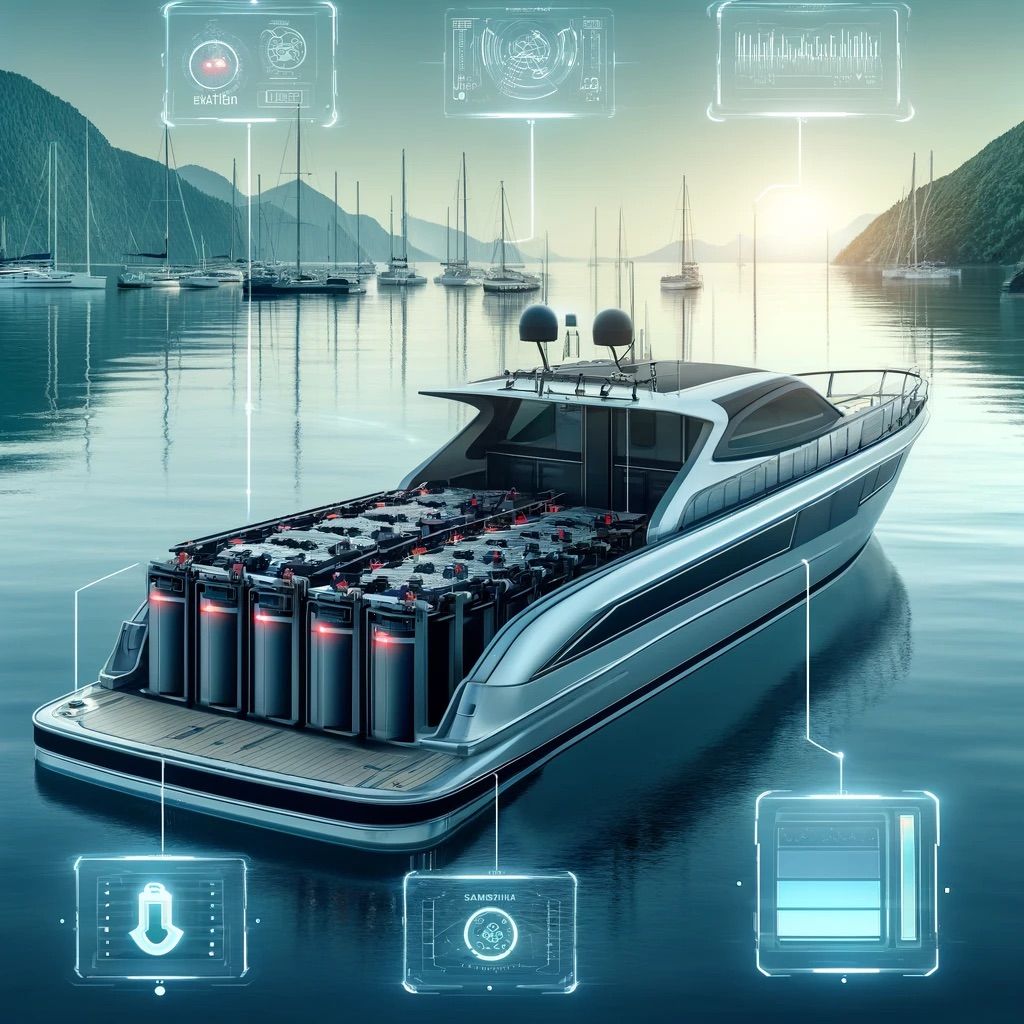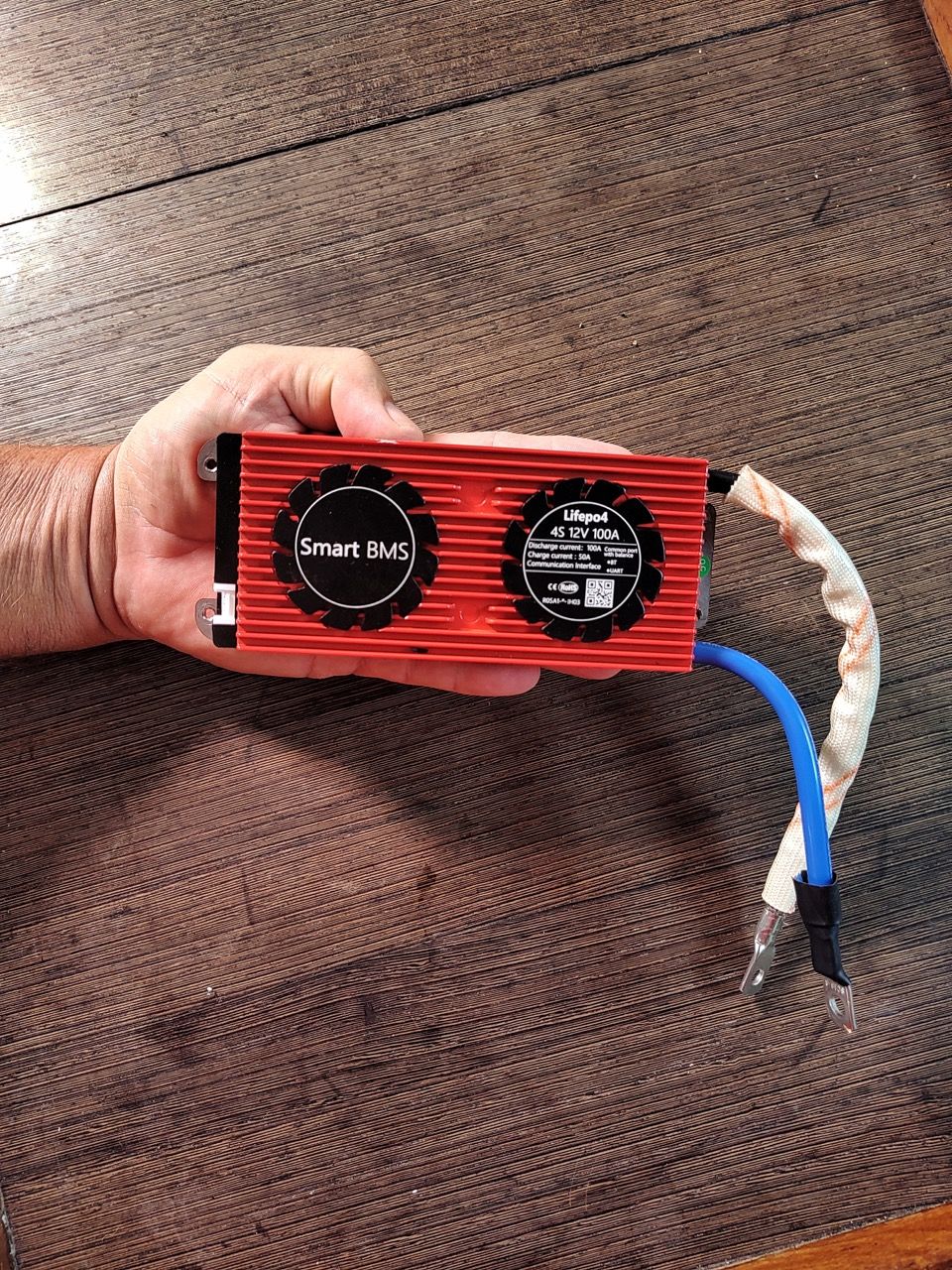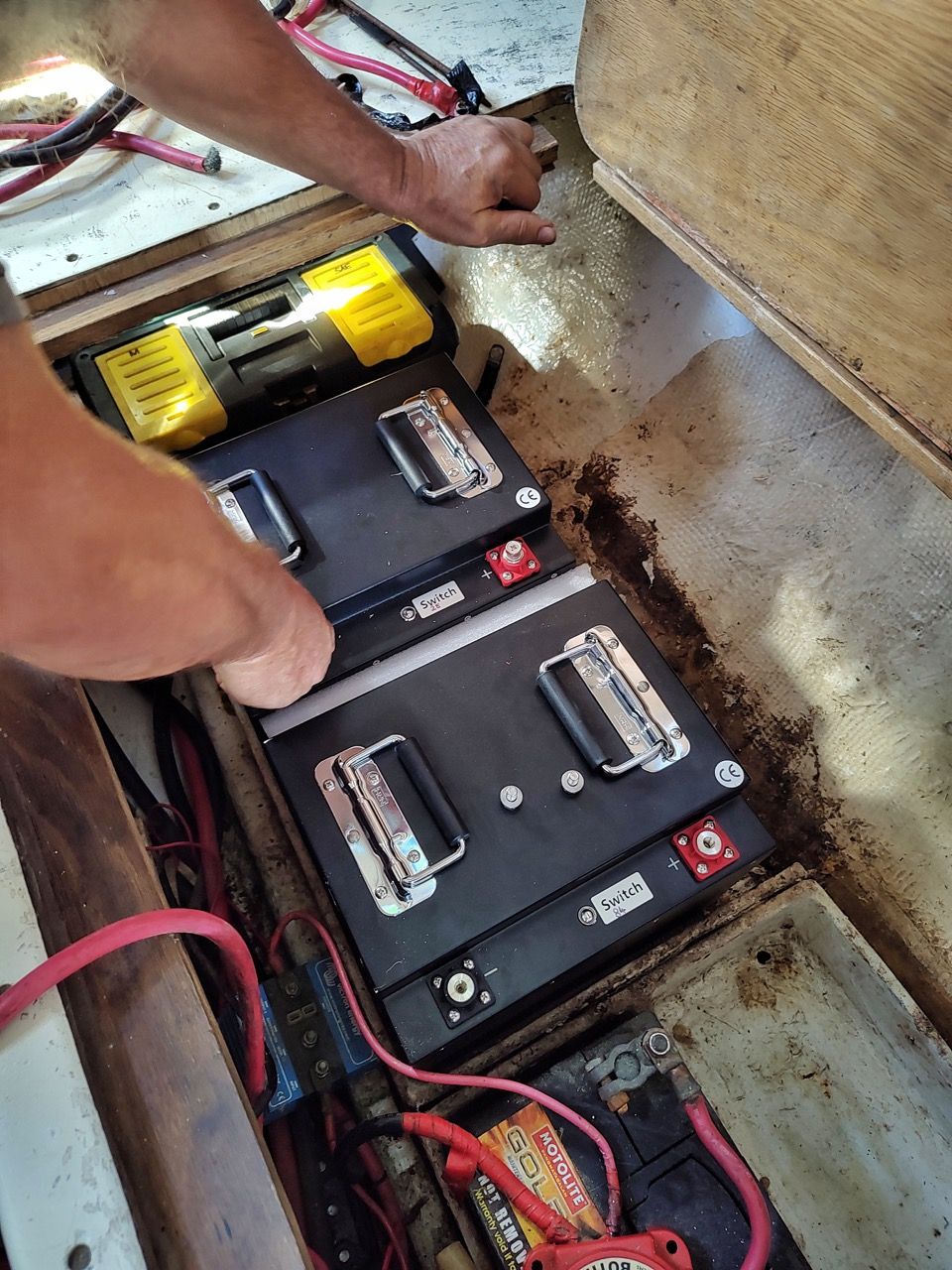Battery Management Systems (BMS) Basics For Boats
Learn about battery management systems (BMS's) on boats, and how vital they are on modern watercraft.
Battery Management Systems (BMS) have become integral to the efficient and safe operation of battery-powered applications across various industries. In the marine industry, the adoption of BMS is crucial not only for optimizing battery performance but also for ensuring fire safety onboard boats and ships, especially boats with modern hybrid diesel electric and fully electronic propulsion systems. This article explores the current trends, innovations, and importance of BMS in the marine sector in 2024, comparing its application with the automotive industry, and looking forward to new developments that benefit recreational boaters in 2025 and beyond.

Above: An artistic rendering of a boat with a lot of batteries onboard, being monitored by an advanced BMS. Image created using OpenAI's DALL-E.
Importance of BMS in the Marine Industry
BMS plays a pivotal role in the marine industry by monitoring and managing battery performance and temperature, thereby enhancing the overall safety and efficiency of a boat.
The primary functions of a BMS on a boat include:
- Cell Monitoring and Balancing: Ensuring uniform performance across all battery cells to prevent overcharging or deep discharging, which can lead to battery failure or fires.
- Thermal Management: Regulating battery temperature to prevent thermal runaway, a critical issue where batteries overheat and can potentially catch fire.
- Safety Protection: Implementing safeguards against overcurrent, short circuits, and other hazardous conditions.
- Data Logging and Diagnostics: Recording performance data for maintenance and optimization, enabling predictive maintenance and troubleshooting.

Above: A battery management system (BMS) for a boat. Photo by Heather Francis.
Fire Safety and Battery Management
The risk of thermal runaway and subsequent fires is a significant concern for battery-powered vessels. BMS mitigates these risks by continuously monitoring key parameters such as voltage, current, and temperature. In case of abnormalities, the BMS can take corrective actions like disconnecting faulty cells, adjusting the charging process, or activating cooling systems.
Recent advancements in BMS technology have further enhanced fire safety for boats. Wireless BMS, for instance, eliminates the need for extensive wiring, reducing potential points of failure and simplifying installation and maintenance processes. This also minimizes the risk of wiring errors that could lead to electrical faults and fires.

Above: LiFePo4 boat batteries installed on S/Y Kate. Photo by Heather Francis.
Comparing BMS in Marine and Automotive Industries
While BMS technology is crucial in both marine and automotive industries, there are notable differences in its application and development between boat BMS technology and car BMS technology.
- Environmental Conditions: Marine environments are harsher, with exposure to saltwater, humidity, and varying temperatures. Thus, marine BMS must be robust and corrosion-resistant compared to their automotive counterparts.
- Regulatory Standards: The marine industry follows stringent safety regulations to ensure vessel and crew safety. Compliance with these standards often requires specialized BMS solutions tailored to maritime applications.
- Power Requirements: Marine vessels, particularly larger ships, have higher power requirements for propulsion and auxiliary systems compared to most electric vehicles (EVs). This necessitates more advanced and scalable BMS solutions capable of managing large battery arrays.
In the automotive industry, BMS development has been driven by the rapid growth of EVs, with a focus on improving battery life, performance, and cost-efficiency. Innovations like AI-based cloud connectivity and predictive maintenance are making significant strides in optimizing battery management for electric vehicles. Similarly, in the marine industry, these innovations have been following suit for boats that utilize e-propulsion systems, including both inboard electric and diesel-electric hybrids as well as boats with electric outboard engines.
NMEA 2000 And Battery Management
Incorporating NMEA 2000 with Battery Management Systems (BMS) on boats significantly enhances the integration and communication of onboard electronics. NMEA 2000, a standardized communication protocol for marine electronics, enables seamless data exchange between various devices, including BMS. This integration allows for real-time monitoring and control of battery status, improving the overall safety and efficiency of the vessel. By utilizing NMEA 2000, BMS can communicate critical information such as voltage, current, temperature, and state of charge to other onboard systems and display units, ensuring that the boat's power management is optimized and potential issues are promptly addressed. This interoperability is crucial for modern boating, where advanced electronics play a vital role in enhancing navigational safety and operational reliability.
Current Trends in BMS Technology
Several trends are shaping the future of BMS technology in the marine world:
- Wireless BMS: Enhances flexibility, reduces installation complexity, and improves reliability by eliminating the risk of wiring faults.
- AI and Machine Learning: Used for advanced state estimation, predictive maintenance, and real-time optimization of battery performance, significantly enhancing efficiency and lifespan.
- Cloud Connectivity: Allows for remote monitoring and management, facilitating large-scale applications such as fleet management and renewable energy storage systems.
Innovations and Future Growth
Looking forward, the integration of AI in boating, machine learning, and cloud-based technologies will continue to drive advancements in BMS. These innovations will not only enhance performance and safety but also reduce costs and improve scalability. For recreational boaters, these developments mean more reliable and safer battery systems, enabling longer voyages and reduced maintenance.
The marine industry is also seeing a shift towards more sustainable practices, with increased adoption of electric and hybrid propulsion systems. BMS will play a crucial role in this transition by ensuring that batteries operate efficiently and safely, thereby reducing greenhouse gas emissions and complying with environmental regulations.
Conclusion
Battery Management Systems are a vital component of modern battery-powered marine vessels, ensuring safety, efficiency, and longevity of battery systems. The ongoing advancements in BMS technology, driven by trends like wireless communication, AI, and cloud connectivity, are poised to transform the marine industry. As these technologies continue to evolve, recreational boaters can look forward to more reliable, safe, and environmentally friendly boating experiences.
By comparing the marine and automotive industries, it's clear that while both sectors benefit from BMS advancements, the unique challenges of the marine environment necessitate specialized solutions. As the demand for electric and hybrid vessels grows, the role of BMS in ensuring fire safety and optimizing battery performance will become increasingly critical.












